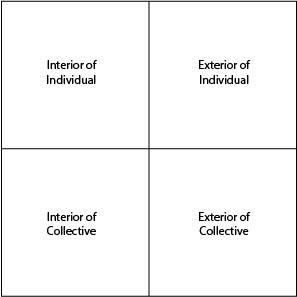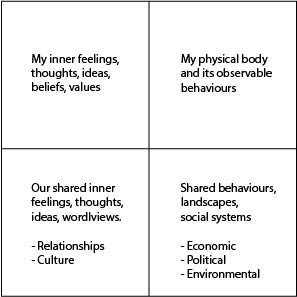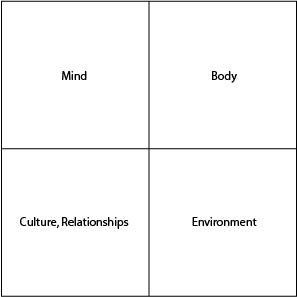This article was written by my wonderful colleague and friend Felicitas Vallot.
It appears here as a guest contribution.
There is no one in the world who will be able to tell you who are you, who you want to be or what will bring you deepest fulfilment in life. Exploring your individuality and moving towards a professional life that will bring you satisfaction and happiness, go hand in hand. This is a life journey and requires continuous self-reflection and honesty; it requires adventure and experimentation. It is you who is the master of this journey. Expressing your your individuality in a job interview as well as throughout your career has one pre-condition. You have to be in touch with yourself.
This article is based on the workshop ‘Moving towards your Individuality’ that I held for Cass Consultancy Society in February 2015. The aim of this workshop, and this article, is to provide some conceptual and practical tools that may guide you on this journey to self-discovery.
Individual and Collective
When asking what individuality is, it is the interrelationship between you (the individual) and the collective (that is the group or the society at large) that comes to mind. How does the collective around you influence you? How does the collective think shape your thinking? What values, beliefs and assumptions have you taken on? What about other people’s expectations? The French sociologist Pierre Bourdieu explores the notion of ‘Habitus’ and the relationship between individual agents and the contextual environment. He claims that the individual comes to embody social structures, including lifestyle, values and expectations of particular social groups. These are acquired through everyday activities and experiences and are embodied unconsciously. Through our tastes, preferences and actions such social structures are then reproduced again, entering the realm of the collective. There is thus a strong correlation between the individual and the collective, both shaping one another to a certain extent, and producing a certain culture.
I believe that it is helpful to be aware of such inevitable mechanisms as it helps us to contemplate deeply the origins and validity of assumptions, expectations, and beliefs we are holding. A self-reflective exercise could be to ask where your aspirations, thoughts and fears come from. Moreover, this notion is related to ‘playing roles’. We each hold a certain position in the social groups we are participating in. With such roles come certain expectations that people ascribe to us. It is useful to mentally step ‘outside’ sometimes, and ask yourself whether and how expectations are influencing you; and whether you are afraid of what other people think about you. Do such expectations limit, or empower you in your decision-making and your striving towards being fully you. It is important to continuously challenge agreed upon knowledge of society and assumptions that you as well as society are holding.
Independent and reflective thinking is one of the most important tools. Not only for yourself and your own fulfilment, but also in order to be able to navigate uncertainty.
This is necessary for leaders, and this is also something that businesses look out for.
‘Brilliant thinking is rare, but courage is in even shorter supply than genius’ (Peter Thiel, 2014).
Holistic Framework For Self-Exploration
But how to navigate uncertainty in the chaos of today’s world?
I propose a conceptual tool that was developed by the philosopher and integral thinker Ken Wilber. It embraces multi-dimensionality and may be used as a compass through which to navigate uncertainty. It proposes four broad dimensions that help us better understand how the world and everything in it fits together.
Wilber proposes that there are four dimensions in which human beings exist. They all have influence on one another.
– There is the ‘interior’ of the individual, the mind and the psyche that includes my feelings, ideas, beliefs and values.
– There is the ‘exterior’ of the individual, which are my physical body and its observable behaviour.
– There is the ‘interior’ collective, which includes shared interior thoughts, beliefs and values; and thus it involves relationships and comprises culture.
– Lastly, there is the ‘exterior’ collective, which involves shared, exterior behaviours and social systems, the economy, politics, and the natural environment.



I believe that being aware of these dimensions helps you in asking:
What is your relationship with these dimensions?
How are you shaping these dimensions?
How have these dimensions shaped you?
How are you an active participant in these dimensions?
How are you taking care of and how do you nurture these dimensions?
What dimensions are important to you?
You may, for example, ask yourself about the ‘interior’ collective dimension. What social relationship do you have, and how are they influencing you. How is the culture you are coming from shaping who you are today?
You may ask yourself in what ways you are active in the ‘exterior’ individual dimension. How do you experience the world through your body? Does your body enable or limit you? How are you taking care of your physical body?
Being aware of these dimensions, you can ask yourself how you interact with them, and also figure out what is important to you. You may ask in which dimensions you want to be more active and develop more competence. Be aware of the interrelationships between you and these dimensions.
The holistic framework for individuality may serve as an analytical tool about your current is-status. And it may also serve as a generative tool, to help you navigate self-development.
Purpose
It is vital in life to ask yourself what your purpose is. In your personal as well as your professional life, you have to ask yourself what it is that motivates you, and what your purpose is. Is your purpose to earn money? Maybe it is. But maybe it is just one among others.
You are the only person who can define what success really means to you. It may mean something else for each one of us. John Strelecky talks about the ‘Safari of Life’. He says that participants of a Safari usually measure the success of their journey by having seen the ‘Big Five’, including the lion, the elephant and so on. Transferring this notion to the safari of our life in general, you can ask, what are the ‘Big Five’ that you want to achieve in your life? What are the five things that you absolutely want to integrate and attain in your life? These could be a happy family life, travelling, friendships, personal growth, adventure, financial stability and so on. Remember that you are the one that decides your ‘Big Five for Life’; you are the one to decide what success means to you. Being aware of what is really important to you may help you find a suitable job that will truly bring you fulfilment and happiness. For example, if it is important to you to have enough time for your family, then you may choose a job that allows you to do that.
A helpful tool is to imagine yourself at the end of your life, at the end of your journey. When you look back, who do you want to see? Who will you be proud to see? What is the legacy you want to leave behind?
In your life journey, don’t be afraid to raise your voice and to be authentic. Stand for your purpose, love yourself and don’t be afraid. I know this is easy to say, but you can work on it! Every day. For your personal development I would suggest you try a personal journal in which you reflect upon yourself. You can start by using the themes that I suggested in this article. Moreover, I highly suggest starting to integrate mindfulness meditation into your life, which will help you to build a closer relationship with your thoughts and ultimately yourself. An easy entry point would be the app: www.headspace.com
Generally, take some time alone, go for walks, experiment, do things that you have never done before, leave your comfort zone, travel, watch independent movies, expose yourself to the world. Challenge yourself! And enjoy it!